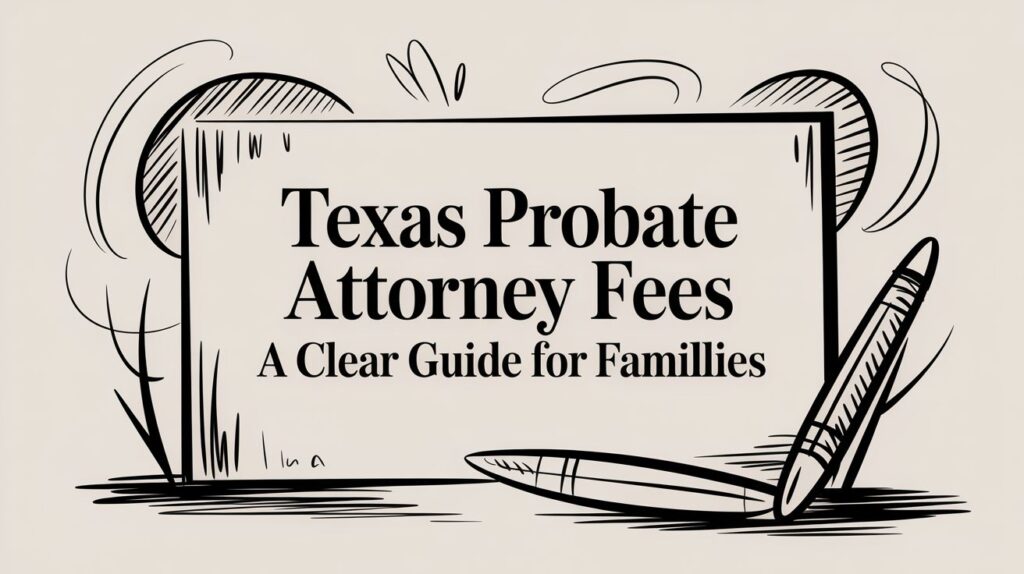Navigating the probate process for real estate is already a detailed and sometimes complicated journey, but when that property is located in a flood zone in Texas, the process can become even more intricate. Texas, being prone to hurricanes and floods, has specific regulations and considerations for properties in flood-prone areas. This article will guide you through the steps involved in managing probate for Texas real estate with flood zone restrictions, offering practical advice and strategies to help you effectively manage the process.
Understanding the Basics of Probate in Texas
Before diving into flood zone restrictions, it’s important to understand the general probate process in Texas:
- Filing the Will and Initiating Probate: The first step involves submitting the deceased person’s will to the probate court in the county where the decedent resided. If there is no will, the court follows Texas intestacy laws to determine the distribution of assets.
- Appointment of an Executor or Administrator: If a will names an executor, the court will confirm this appointment. If no executor is named or if the decedent died intestate (without a will), the court will appoint an administrator.
- Inventory and Appraisal of Assets: The executor or administrator must compile a detailed inventory of all assets, including real estate, which will need to be assessed for its market value.
- Settling Debts and Taxes: The estate must settle any outstanding debts, taxes, or liens, which can involve selling assets or using estate funds.
- Distributing Assets: Once debts are paid, the executor or administrator distributes assets according to the will or state laws.

The Impact of Flood Zone Restrictions on Real Estate
Texas has many flood-prone areas, especially along the Gulf Coast and in regions near rivers and large lakes. Owning property in these areas comes with specific challenges:
- Flood Insurance Requirements: Properties in designated flood zones often require flood insurance. Federal and state regulations might necessitate an update or verification of flood insurance coverage, especially when ownership changes during probate.
- Zoning and Building Restrictions: Texas imposes zoning laws and building codes to reduce flood risk. These may limit new construction or renovations, and some counties may have specific elevation requirements for properties in flood zones.
- Valuation Fluctuations: The market value of real estate in flood-prone areas can be volatile due to the potential risk of flood damage. This fluctuation can complicate the appraisal and selling process during probate.
Step-by-Step Guide to Navigating Probate for Flood Zone Real Estate
Navigating probate for Texas real estate with flood zone restrictions requires special attention to compliance, insurance, and market factors. Here’s a detailed guide:
1. Verify Flood Zone Designation and Property Details
The first step is to verify if the property is officially designated as being in a flood zone. The Federal Emergency Management Agency (FEMA) publishes flood maps for Texas counties, and you can check these through their online platform or through local government offices. This designation impacts everything from insurance to zoning and building regulations.
- Use FEMA’s Flood Map Service: Visit the FEMA website and input the property’s address to confirm its flood zone status. This information will also help you understand the risk levels associated with the property.
- Check Local Ordinances: Besides federal guidelines, local governments may have additional zoning restrictions or building codes for properties in flood-prone areas. It’s crucial to verify this information early in the probate process.
2. Review and Update Flood Insurance
Flood insurance is a critical component when managing property in flood zones. The National Flood Insurance Program (NFIP) provides federally backed insurance for such properties, and you’ll need to confirm if the property has active coverage.

- Check Existing Policies: Determine whether the decedent maintained flood insurance on the property. If a policy exists, contact the insurance provider to update the policyholder details and ensure coverage remains active during probate.
- Consider Temporary Insurance Needs: If no flood insurance exists or if it’s outdated, securing temporary coverage may be necessary to protect the estate from potential risks, especially if the property remains in probate for an extended period.
3. Conduct an Accurate Appraisal of the Property
Appraising real estate in flood zones requires a specialized approach. The risk of flooding can significantly affect property value, and appraisers familiar with flood-prone areas should be used to ensure an accurate valuation.
- Hire a Certified Appraiser with Experience in Flood Zones: An appraiser with knowledge of flood risks will factor in the likelihood of flooding, insurance requirements, and market trends when determining the property’s value.
- Consider Future Development Potential: If the property can be elevated or modified to meet zoning requirements, this may enhance its marketability and overall value. Conversely, properties restricted from such modifications may have limited appeal.
4. Comply with Local and Federal Regulations
Navigating probate in Texas flood zones means adhering to both local building codes and federal regulations. Non-compliance can result in fines, construction halts, or even revocation of ownership rights.
- Check for Permitting Requirements: If you need to renovate or repair the property before it’s sold, obtain the necessary permits. Counties in Texas may have specific guidelines for floodplain management.
- Ensure Compliance with FEMA Regulations: FEMA requires certain elevation and construction standards for properties in designated flood zones. Make sure any construction or renovation aligns with these guidelines to avoid penalties or increased insurance premiums.
5. Settle Any Outstanding Flood-Related Debts or Liens
Flood-prone properties may have unique liabilities attached, such as unpaid flood insurance premiums or fines for previous non-compliance with building codes. These debts must be settled before distributing the estate.
- Examine Local Tax Records: Delinquent flood zone taxes or fees might exist, especially if the decedent had disputes with local authorities over property compliance.
- Address Liens Promptly: If there are liens due to unpaid insurance or non-compliance penalties, prioritize their settlement to avoid complications in the probate process.
6. Sell the Property or Transfer Ownership Wisely

Deciding whether to sell the property during probate or transfer it to a beneficiary can be influenced by its flood zone status. Real estate in high-risk areas may have a smaller pool of buyers, but there are strategies to mitigate these challenges:
- Market the Property Effectively: When listing the property, highlight any flood mitigation features (e.g., elevated foundation, flood barriers) to attract buyers who are looking for reduced-risk investments.
- Be Transparent About Flood Risks: In Texas, sellers must disclose flood risks to potential buyers. Providing a clear history of the property’s flood incidents, insurance claims, and improvements can build trust and facilitate the sale.
- Consider Transferring to a Beneficiary: If selling seems unfeasible, another option is transferring ownership to a beneficiary, especially if the property holds sentimental value. However, it’s essential to inform the beneficiary about the ongoing responsibilities, including maintaining insurance and complying with floodplain regulations.
7. File for Necessary Approvals with the Probate Court
When dealing with flood zone real estate, you might need additional approval from the probate court for actions like selling the property or modifying it to comply with zoning laws.
- Submit Required Documentation: Prepare documents that demonstrate compliance with flood zone regulations, insurance details, and a market analysis if you intend to sell the property.
- Seek Legal Guidance: Working with a probate attorney experienced in flood zone cases can streamline court approval and ensure that all actions meet state and federal requirements.
Practical Example: A Case Study
Imagine an executor named John, responsible for his aunt’s estate, which includes a beachfront property in Galveston, Texas. The property is located in a FEMA-designated flood zone, and while it holds sentimental value, it also comes with challenges:
- Flood Insurance Lapse: John discovered the flood insurance had lapsed months before his aunt’s passing. He immediately contacted an insurance provider to secure coverage, avoiding potential damage that could have drained the estate’s funds.
- Permit for Repairs: To increase the property’s value, John needed to repair storm shutters. He applied for a local permit and followed county guidelines, ensuring the property complied with flood regulations.
- Appraisal and Selling: Knowing the market for flood-prone real estate was limited, John hired a specialized appraiser and listed the property with full disclosure. By being transparent, he found a buyer willing to invest in flood mitigation efforts, successfully closing the sale.
Final Steps: Probating Texas Flood Zone Real Estate
Probating real estate with flood zone restrictions in Texas requires a diligent and informed approach. From verifying flood zone status and managing insurance to complying with regulations and selling or transferring ownership, the process is multifaceted. By taking proactive steps, seeking legal advice, and staying transparent throughout, executors can efficiently manage the probate process while protecting the estate’s value.
Whether you’re an executor or someone involved in estate planning, understanding how flood zone restrictions impact real estate is vital. Proper preparation and knowledge can turn a potentially overwhelming process into a manageable and even successful experience.








